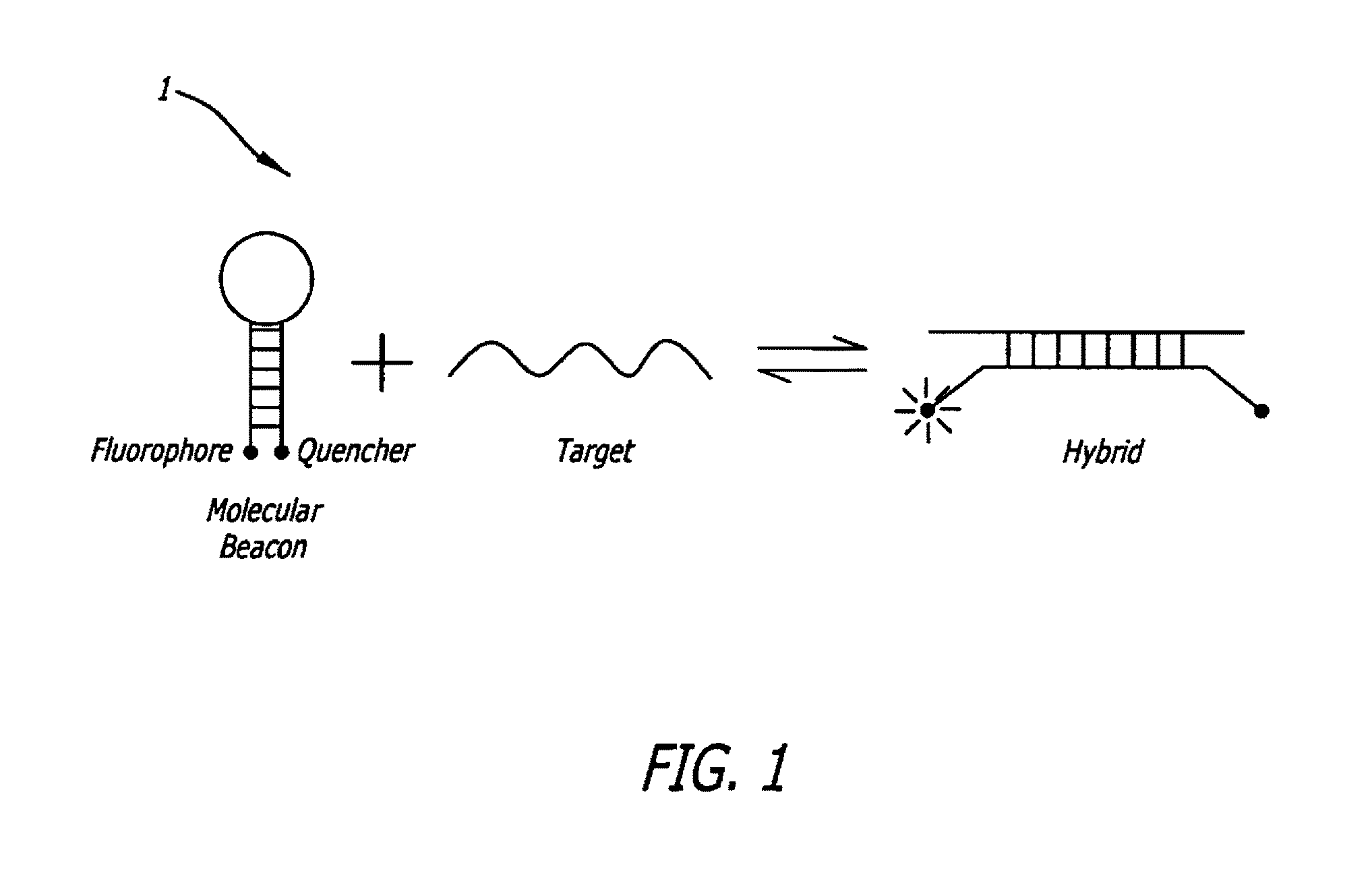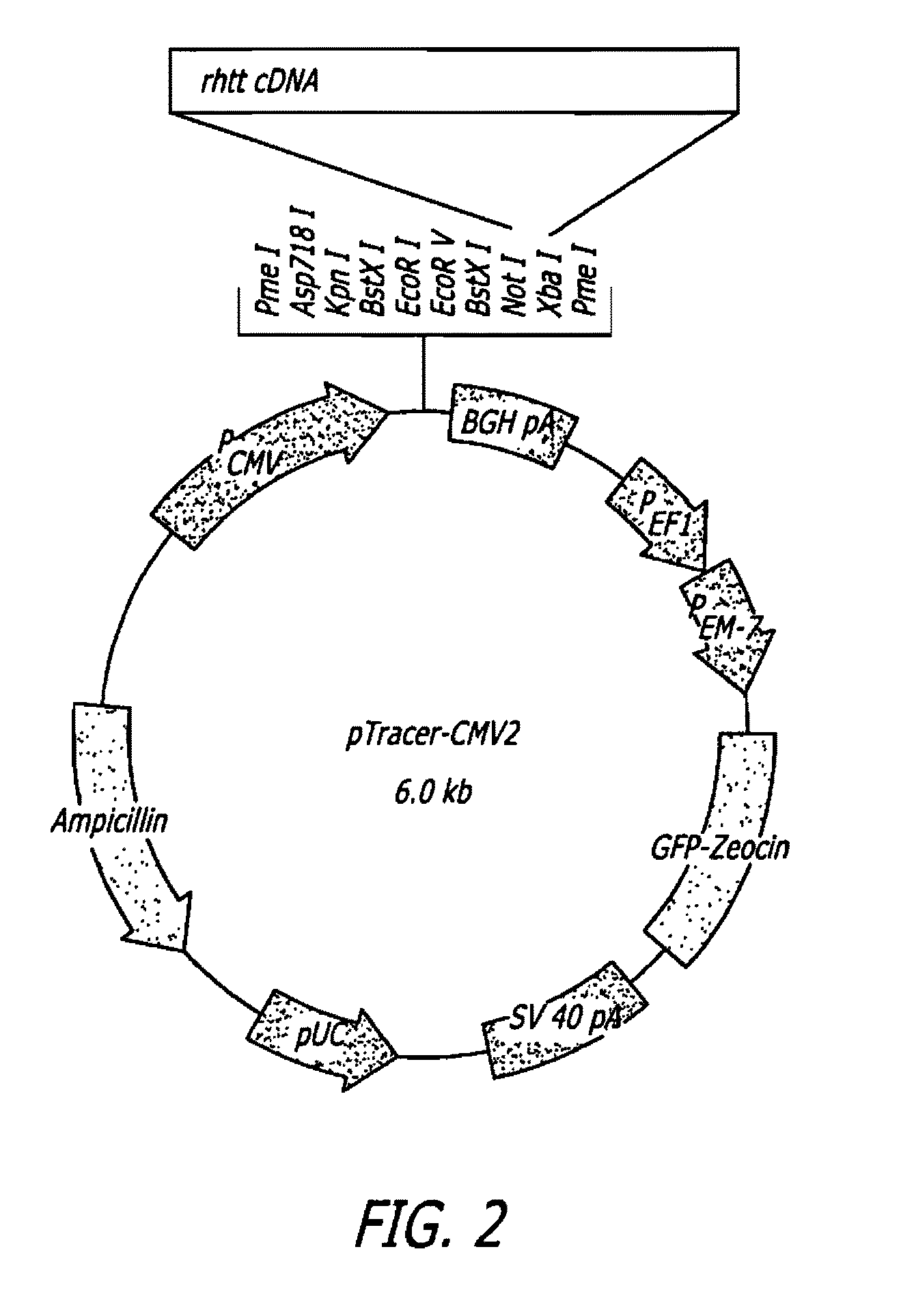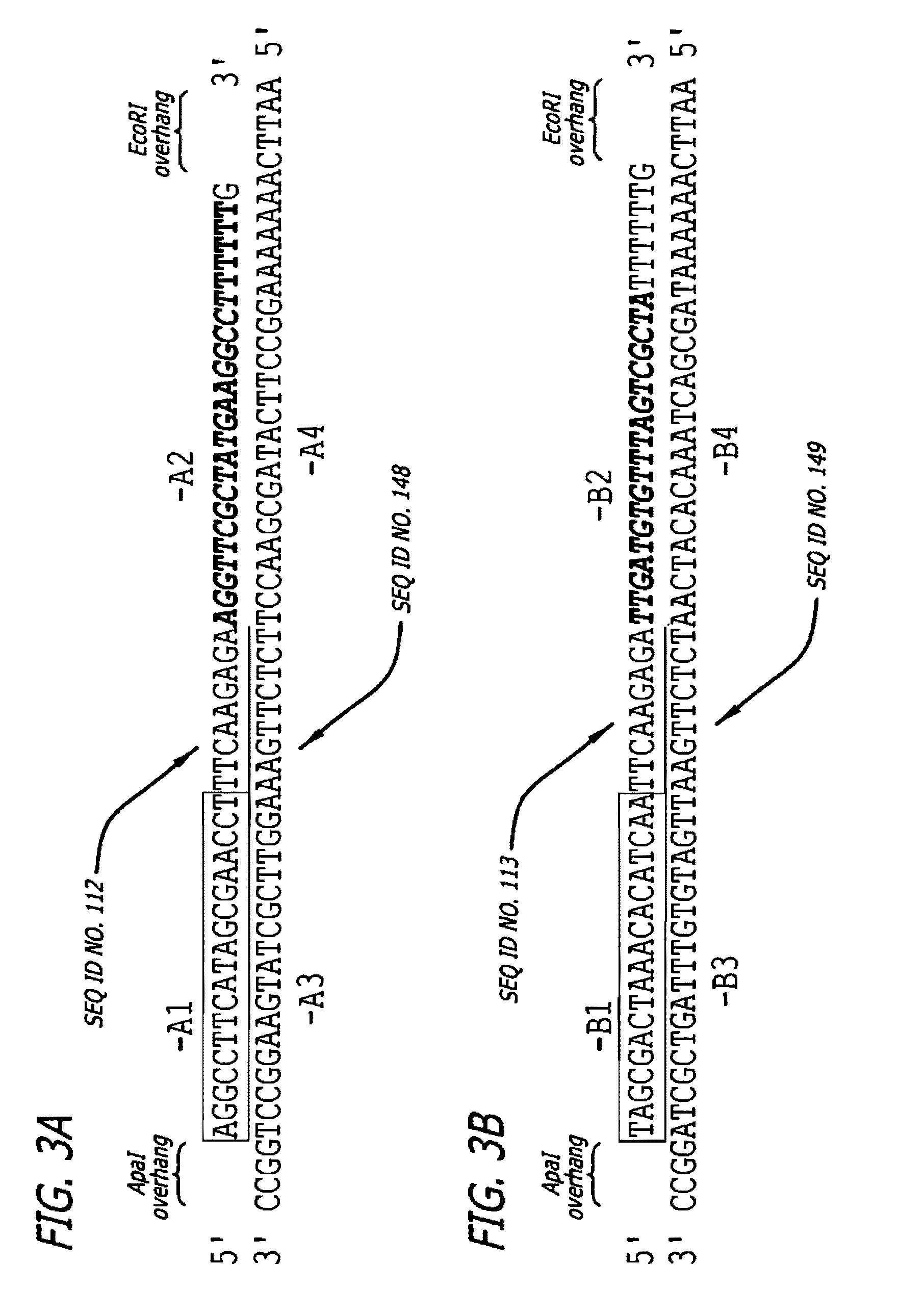Methods and sequences to preferentially suppress expression of mutated huntingtin
a technology of mutated huntingtin and sequences, applied in the field of methods and sequences to preferentially suppress the expression of mutated huntingtin, can solve the problems of slow destruction of the affected individual's ability to walk, think, talk and reason, and reducing the cell's ability to create the protein for which it encodes, so as to suppress the expression and action, prevent or alleviate the symptoms of hd, and suppress the expression of mutated hd
- Summary
- Abstract
- Description
- Claims
- Application Information
AI Technical Summary
Benefits of technology
Problems solved by technology
Method used
Image
Examples
example 1
Allele-Specific Suppression of the Huntingtin Gene
[0050]The following siRNA's were designed and used in the described study (synthesized by Ambion Inc., Austin, Tex.): TABLE-US-00003 SEQ ID siRNA Sense sequence: position 5465 on the NO:136 363125_C-16 5′ GAGAUGGGGACAGUACUUCtt 3′ Huntington mRNA (NM—002111.3) SEQ ID siRNA Anti-sense sequence: position 5465 on the NO:137 363125_C-16 5′ GAAGUACUGUCCCCAUCUCtt 3′ Huntington mRNA (NM—002111.3) SEQ ID siRNA Sense sequence: position 5472 on the NO:138 363125_A-9*10 5′ GGACAGUAAGUCAACGCUAtt 3′ Huntington mRNA (NM—002111.3) SEQ ID siRNA Anti-sense sequence: position 5472 on the NO:139 363125_A-9*10 5′ UAGCGUUGACUUACUGUCCct 3′, Huntington mRNA (NM—002111.3)
[0051]Cell culture. Human fibroblasts from Huntington patients (GM04022, Coriell Institute) heterozygous for SNP363125 were cultured in Minimum Essential Medium with Earle's salts, L-glutamine, essential and non-essential amino acids, vitamins, and 15% fetal bovine serum (Gibco) at 37° C. an...
example 2
Effectiveness of siNA and shNA Sequences in Treating HD Patients
[0055]A double-blind, placebo controlled study is conducted over a 1-year period. A total of 200 subjects, all presenting for treatment of HD are chosen for the study. The patients range in age from 35-65 years old.
[0056]An initial assessment of the symptoms of each patient is conducted when the patients initially present for treatment. The treating physician rates the severity of symptoms associated with HD on a 4-point scale (1: mild; 2: moderate; 3: strong; 4: severe). Patients then are screened for the presence of heterozygous SNPs within their HD genes. Patients that are heterozygous for a specific SNP within their HD genes are the 200 chosen for the study.
[0057]The 200 subjects chosen for the study are separated evenly into two main groups, treatment and control. The severity of the symptoms between the groups is comparable. No other medications are taken by the patients during the assessment period.
[0058]Accordin...
PUM
| Property | Measurement | Unit |
|---|---|---|
| temperature | aaaaa | aaaaa |
| optimal temperature | aaaaa | aaaaa |
| optimal temperature | aaaaa | aaaaa |
Abstract
Description
Claims
Application Information
 Login to View More
Login to View More - R&D
- Intellectual Property
- Life Sciences
- Materials
- Tech Scout
- Unparalleled Data Quality
- Higher Quality Content
- 60% Fewer Hallucinations
Browse by: Latest US Patents, China's latest patents, Technical Efficacy Thesaurus, Application Domain, Technology Topic, Popular Technical Reports.
© 2025 PatSnap. All rights reserved.Legal|Privacy policy|Modern Slavery Act Transparency Statement|Sitemap|About US| Contact US: help@patsnap.com



